The bull market is coming back quickly, and the fastest returning sector is the Meme sector.
There have been a lot of golden dogs on the chain recently, and it seems that the lively mood of beating the dogs has returned.
However, in the on-chain meme space, unlike the previous round where Pump.fun was the only one dominating, there are more challengers to Pump.fun in the current version, trying to shake its position as the dominant meme launcher.
After all, it is a very lucrative business for the platform to make money from the transaction fees by posting memes every day. So you can see that various launchpads have appeared in large numbers recently, and on each launchpad, there are golden dogs trying to attract the limited attention of the stock market.
In this environment, two platforms began to release memes with the same name. For example, today a token with the same name $GLONK appeared on letsBONK.fun (hereinafter referred to as Bonk.fun) and Pump.fun, and both platforms fully supported their respective versions.

Bonk.fun is jointly incubated by Raydium and the Bonk community. Raydium provides technical support for Bonk.fun through its LaunchLab platform; while the Bonk community relies on the influence of its meme token $BONK to provide a basic foundation for Bonk.fun.
This is clearly a strong competitor to Pump.fun.
On the surface, this is a battle for tokens, with players betting on which Glonk will win; but in fact, it is an infrastructure war for the Solana ecosystem, which not only concerns the market value and trading volume of tokens, but also the platform’s technical strength, community support and development prospects.
More importantly, it concerns the real platform income and benefits.
Tokens represent popularity and attention. Competition among high-end platforms often takes the form of a horse race over the price of a certain token.
The same currency competes with the founders in the air
Judging from the current situation, $GLONK on Bonk.fun seems to be better.
As of press time, the market value of the Bonk.fun version of $GLONK is around US$16.5 million, while that of Pump.fun is US$4.4 million; the Bonk.fun version of $GLONK is also leading in terms of trading volume and liquidity.
Behind the price fluctuations of $GLONK tokens is a fierce confrontation between the founders of Bonk.fun and Pump.fun.
Although not in direct confrontation, Bonk.fun developer SolportTom (@SolportTom) and Pump.fun's Alon (@a1lon9) have both been vocal in their support for their respective platforms.
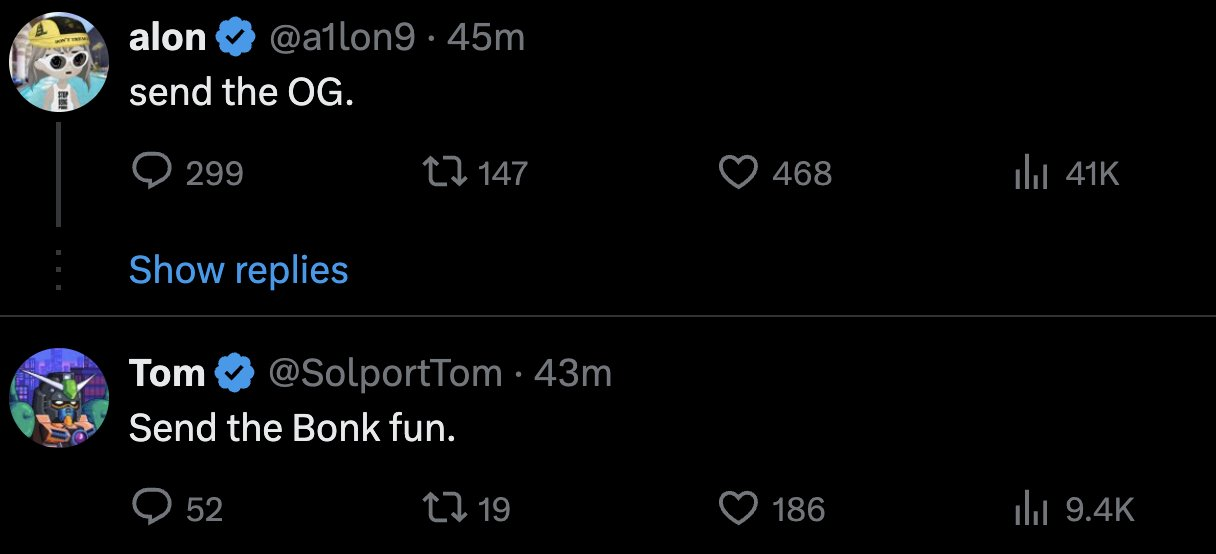
Tom posted that everyone should support Bonk.fun; and 2 minutes later Alon also posted a similar sentence "SEND THE OG.", implying that Pump.fun was the old OG who launched the meme. The direction and implication are self-evident.
What’s even more exciting is that both parties gradually made their intentions clear and named each other, saying that the $GLONK on their own platforms is the best solution.
Tom believes that the market has made its choice and the price of GLONK tokens speaks for itself. He directly @Alon:
"The market cap of the token on Bonk.fun is $3 million, while the market cap on Pump.fun is only $170,000, but someone posted something saying 'support the OG version', which I think is very low-class."
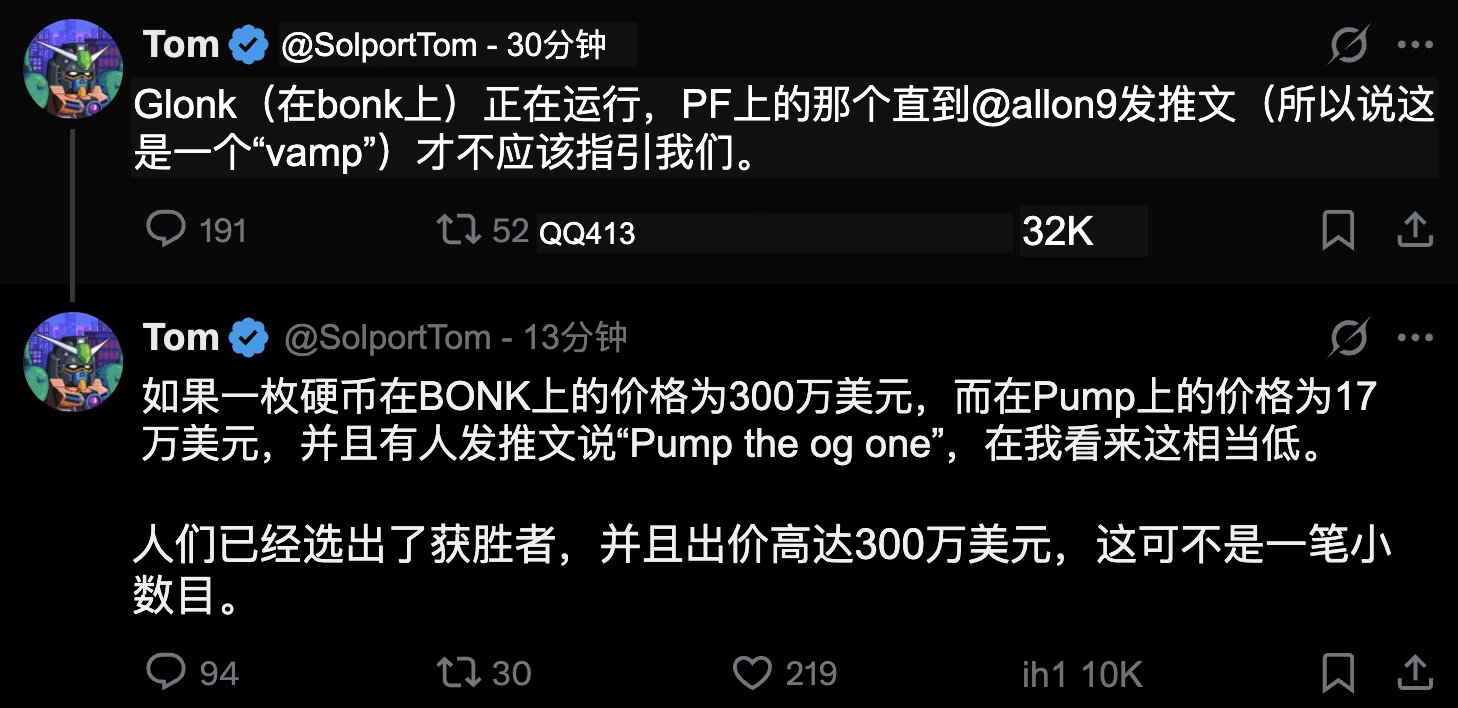
Alon believes that the price performance does not explain the problem. Pump.fun has its own proud grassroots culture and community spirit; the rise in token prices on Bonk.fun is more like the behavior of a conspiracy group.
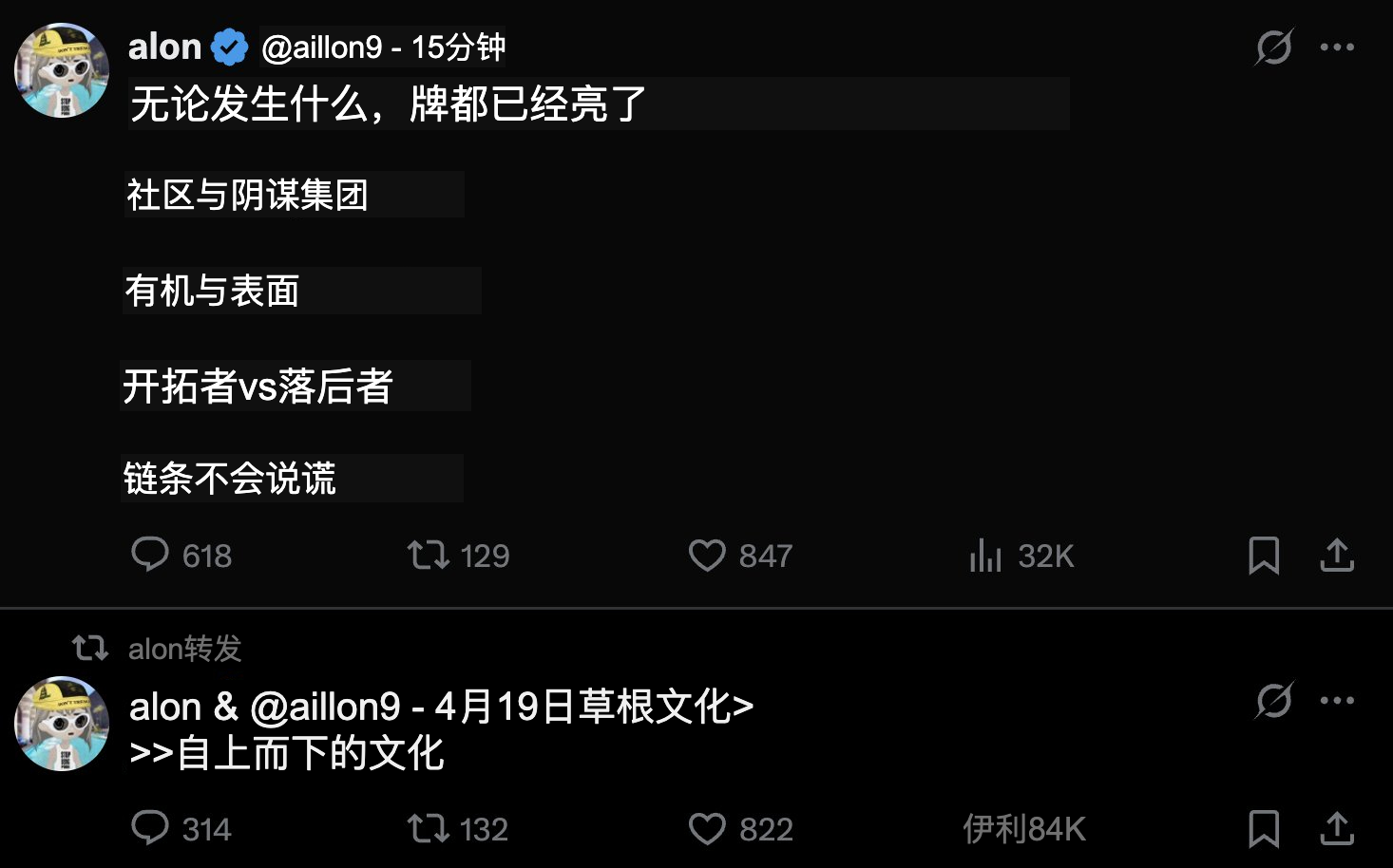
This "war of words" had a significant impact on market sentiment. After Alon's "OG" speech was released at 00:15, the market value of the Pump.fun version of $GLONK rose from $7.8 million to $13.4 million, showing its short-term boost to market sentiment.
However, the market cap of the Bonk.fun version rebounded to $16.5 million in the following 10 hours, while the Pump.fun version fell to $4.4 million, indicating that the market ultimately favored the Bonk.fun version.
Earlier, the official account of Pump.fun had blocked Tom, the developer of Bonk.fun, which also highlighted the tense competitive situation.
At present, it seems that $GLONK on Bonk.fun has indeed won, but the victory of a single token may not fully explain the problem. The competitive advantages of each platform and the means of attracting users are the key.
Form alliances and strike back
Today’s data shows that the number of graduated tokens on Raydium’s LaunchLab (mainly the Bonk.fun launchpad) has exceeded the number of graduated tokens on Pump.fun for the first time.
Although the former still cannot compare with Pump.fun in terms of the number of tokens created, the higher graduation rate also reflects, to a certain extent, that attention and liquidity are gradually being eroded, and Pump.fun's dominant position has indeed been impacted.
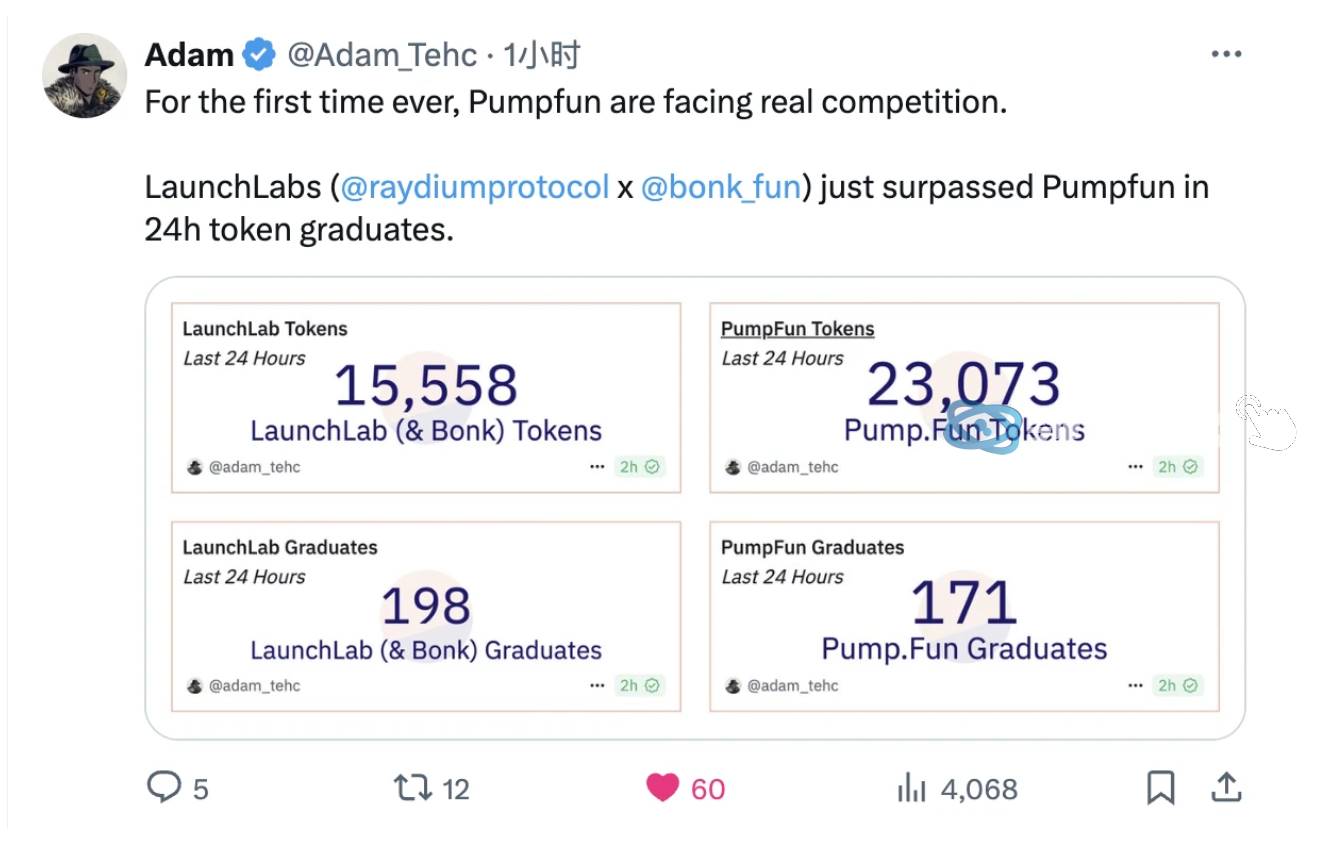
Two days ago, according to KOL @theunipcs, Bonk.fun developer Tom revealed some key data of LetsBONKfun during a chat:
- 6,911 tokens were created in 24 hours, with fees of 2,880.36 SOL (about $500,000 at the time);
- A total of 26,902 tokens have been created since the launch of the platform;
- The total amount of fees generated since launch is 10,197.83 $SOL (nearly 2 million USD in just two weeks since launch)
Behind the data, the platform's growth benefits from a creator-centric incentive mechanism:
On May 4, 2025, the platform partnered with Raydium to provide 50,000 RAY airdrops to eligible Launchlab and LetsBonk.fun traders to boost user engagement.
On May 11, LetsBonk.fun announced that it would offer $5,000 in rewards to five tokens that “develop rapidly and continue to grow” over the next week.
On May 13, Tom adds another $15,000 in rewards for the next week's best performing project.
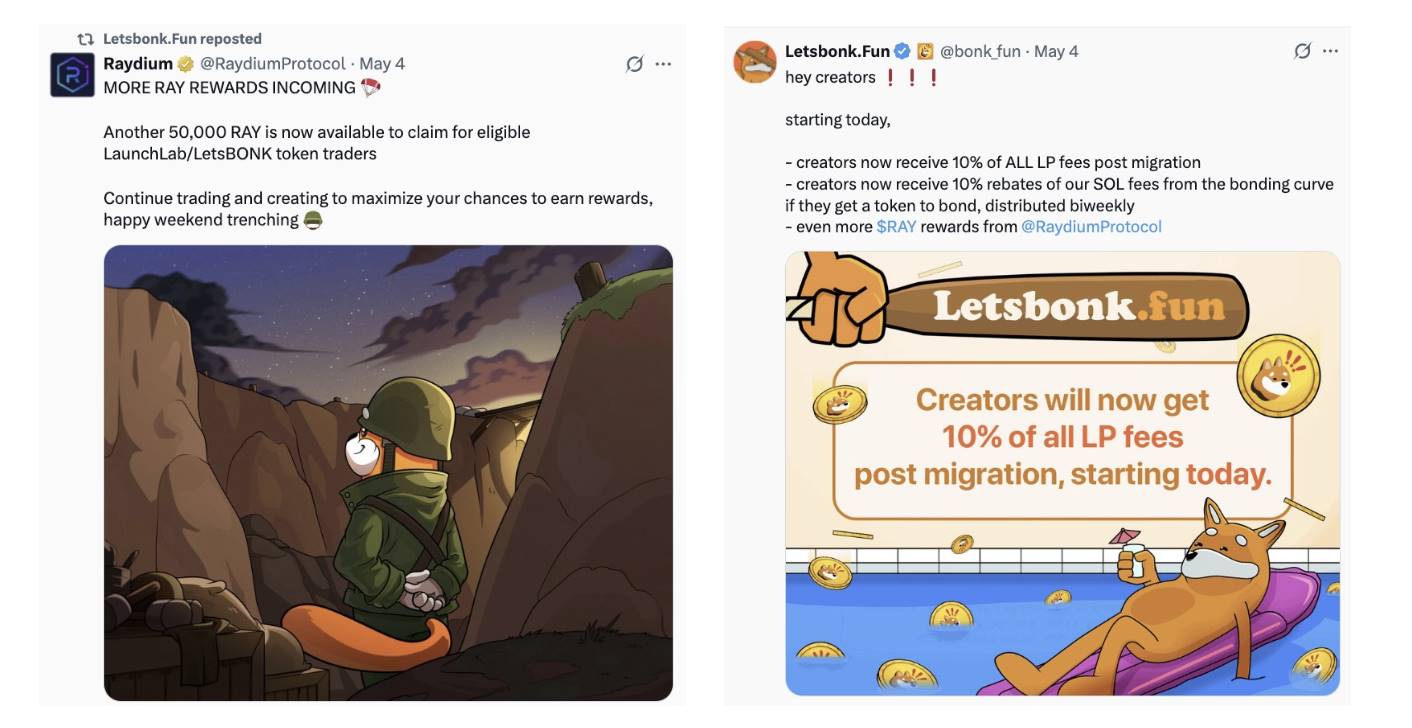
This is quite different from the way food delivery platforms provide subsidies and burn money to attract merchants and users.
There will always be brave men under great rewards. The platform will also share 10% of the liquidity pool (LP) fees with token creators after migration. These measures have also attracted FARTCOIN developers to deploy two tokens on Bonk.fun - FANGPI and BarkCoin; the market value of BarkCoin reached US$826,700 on May 13, bringing wider attention and participation to LetsBonk.fun.
The most interesting thing is to establish connections with the Chinese community.
Bonk.fun has not only developed a series of tools that support the one-click creation of tokens based on the content of Chinese social media platforms, but also incorporated narrative elements related to hot topics in China.
The ikun that became popular on Bonk.fun yesterday is a strong proof of this. The Chinese meme "Ji Ni Tai Mei" began to spread, and the market value of ikun once exceeded 12 million US dollars.

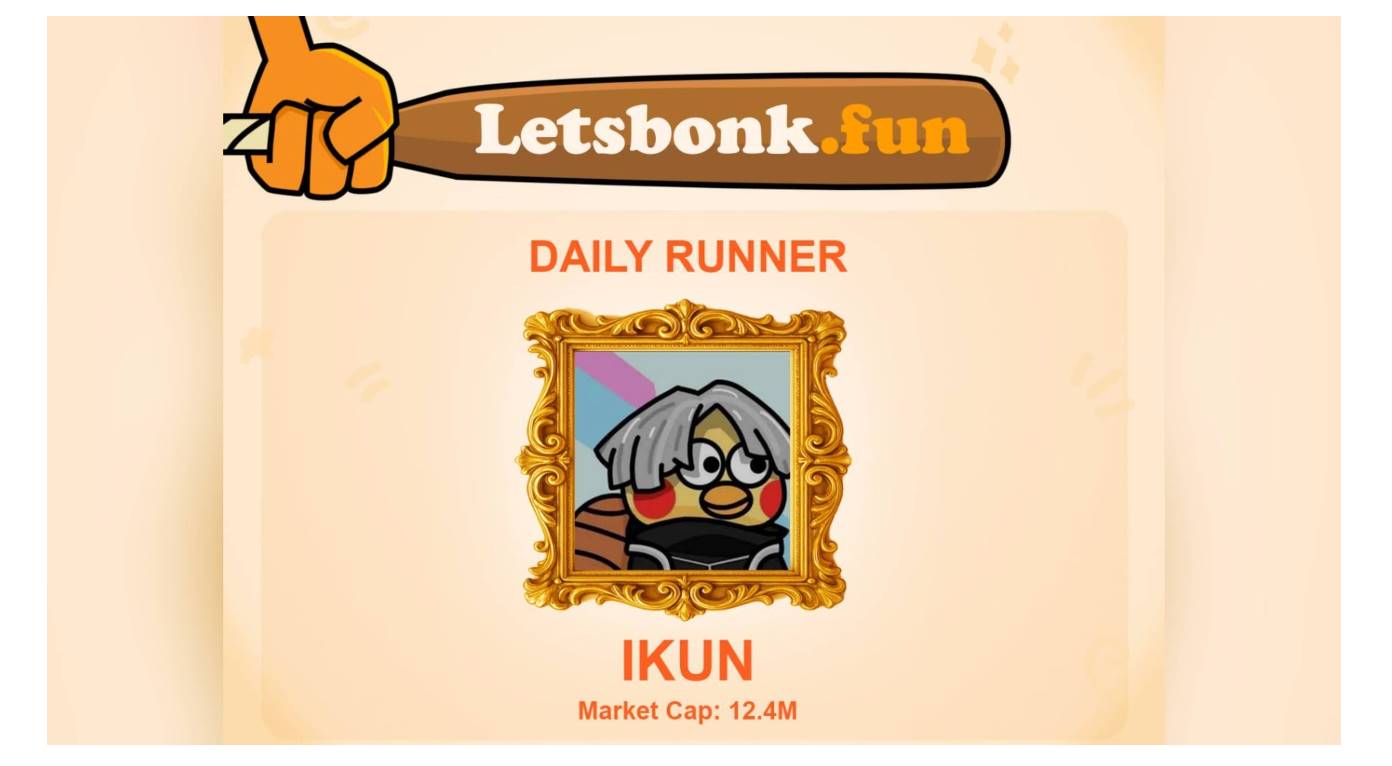
Who will win?
As the two major players in the meme token launch pad of the Solana ecosystem, the two platforms have launched a comprehensive competition in technical strength, community support and market performance.
Bonk.fun has risen rapidly with the support of Raydium and the Bonk community, while Pump.fun has fought back with technological innovation and a large user base. Let's take a closer look at the competitive advantages and highlights of each of the two:
The token creation process of Bonk.fun is also very simple (only three steps: click "Create Token", enter information, and set the issuance volume), which lowers the user threshold, and Raydium's CPMM pool provides higher liquidity support for its tokens; in addition, Bonk.fun enhances community stickiness through an income feedback mechanism (35% is used for $BONK repurchase and destruction), attracting a large number of users interested in the Bonk ecosystem.
As a market leader, Pump.fun has also been strengthening its position through innovations in recent years.
In March 2025, Pump.fun launched the PumpSwap platform, which provides instant and free token migration (previously required 6 SOL) and supports cross-chain token transactions (such as Aptos' APT).
In early May 2025, Pump.fun introduced a creator revenue sharing mechanism (0.05% transaction volume sharing) to try to solve the "pump-and-dump" problem by incentivizing creators. Although it is temporarily lagging behind in the $GLONK competition, Pump.fun is still the more stable one on the throne with its large user base (peak daily active addresses of 107,000) and cumulative revenue of $150 million.
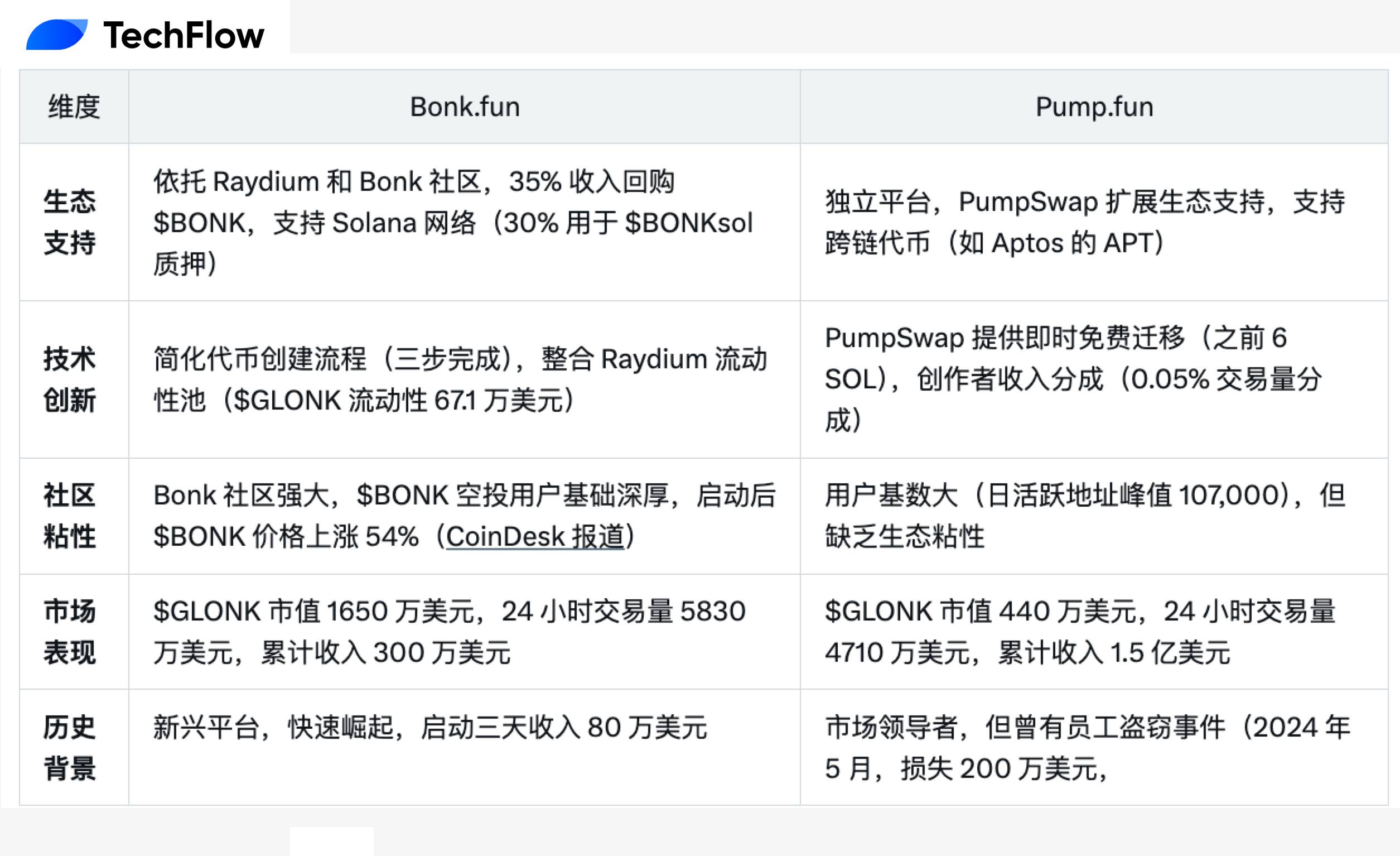
If Bonk.fun wants to truly shake Pump.fun's position, it needs to further expand its user base and technological innovation, while Pump.fun needs to resolve the community stickiness and the trust crisis caused by historical negative events (such as the employee theft incident in 2024).
On the other hand, for players on the chain, platform competition is more like a bonus.
Different platforms are bound to create their own wealth effects. Whether it is a conspiracy or a community, the probability of a golden dog appearing will become higher. Compared with a lifeless market, it is better to have a golden dog than not, and just sitting there will bring the expectation of gain.
At the same time, in order to attract users, the platform will inevitably launch more favorable rules or incentive plans, which can be regarded as a kind of meme.
However, the emergence of multiple platforms has made the already extremely fierce PVP trench even more crowded, with a shorter token life cycle and a faster pace of entry, which have put more demands on energy and monitoring.
Chaos is the ladder to success, and there are always young people who benefit from version changes.















